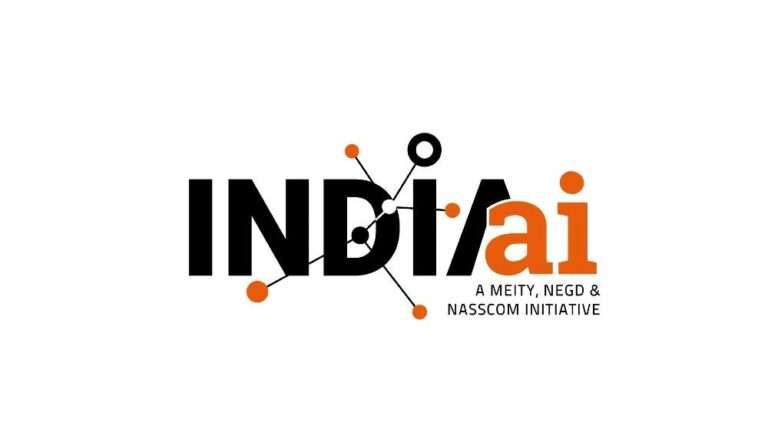The government has allocated Rs 10,300 crore for the IndiaAI Mission over the next five years. By nurturing an environment conducive to innovation, promoting knowledge sharing, and empowering stakeholders, the IndiaAI Mission is well-positioned to pave the way for a transformative future where AI acts as a catalyst for progress and prosperity for everyone.
The Modi government has unveiled a significant boost to India’s artificial intelligence (AI) landscape with an allocation exceeding Rs 10,300 crore for the IndiaAI Mission over the next five years. This initiative aims to fast-track various key projects such as the IndiaAI Compute Capacity, IndiaAI Innovation Centre (IAIC), IndiaAI Datasets Platform, IndiaAI Application Development Initiative, IndiaAI FutureSkills, IndiaAI Start-up Financing, and Safe & Trusted AI. The investment underscores the government’s commitment to fostering India’s AI innovation ecosystem through a collaborative public-private partnership model.
The initiation of this mission comes after significant advancements made by countries such as the US and China in this field over the past two decades. It arrives at a crucial juncture when various individuals and organizations are striving to develop India-specific large and small language models. While the allocated funds may seem modest considering India’s stature and the necessary infrastructure for supporting AI endeavours and start-ups, what’s noteworthy is the acknowledgement of the challenge and the potential it holds. The funds will be utilized to enhance access to computing resources, enhance data quality, and foster indigenous AI capabilities. Furthermore, the mission aims to attract top AI talent, offer start-up capital, and promote responsible and inclusive growth within the nation’s AI ecosystem.
The IndiaAI Mission stands poised as a pivotal force in propelling India to the forefront of global leadership in AI research and innovation. Through its strategic initiatives aimed at cultivating collaboration, nurturing talent, and advocating for the responsible integration of AI, the mission endeavours to catalyze socioeconomic progress, enhance governance frameworks, and tackle the most pressing challenges confronting the nation. By fostering a collaborative ecosystem, the mission seeks to harness the collective expertise of academia, industry, and government, thereby facilitating the exchange of ideas, resources, and best practices. Through targeted investments in talent development, the mission aims to cultivate a skilled workforce equipped with the necessary expertise to drive innovation and leverage AI technologies effectively.
Additionally, the mission places a high priority on advocating for responsible AI integration, with a focus on ethical principles, transparency, and accountability throughout the lifecycle of AI systems. By proactively addressing issues such as bias, privacy, and security, the mission endeavours to instill trust and assurance in AI technologies among all stakeholders and the wider public.
All set
The investment is set to bolster the IndiaAI Compute Capacity project, aimed at establishing a cutting-edge AI computing infrastructure by deploying over 10,000 Graphics Processing Units (GPUs) through strategic partnerships between the public and private sectors. Its primary goal is to enhance the IndiaAI Startup Financing mechanism, facilitating easier access to funding for emerging AI startups and expediting their transition from product development to commercialization. Additionally, funds will be allocated for industry-led AI projects to promote societal impact, foster innovation, and stimulate entrepreneurship.
The IndiaAI Innovation Centre (IAIC), envisioned as a premier academic institution, will take a central role in recruiting and retaining top research talent. The allocated funds will empower IAIC to spearhead the development and deployment of foundational models, with a particular focus on indigenous Large Multimodal Models (LMMs) and domain-specific models. These efforts will leverage edge and distributed computing for optimal efficiency. Furthermore, the Independent Business Division (IBD) will receive support to enhance the IndiaAI Datasets Platform, thereby improving the accessibility, quality, and utility of public sector datasets. This initiative aims to promote data-driven governance and foster AI-based innovation and research.
The IndiaAI FutureSkills initiative is geared towards expanding the reach of AI education. It seeks to achieve this by making graduate and post-graduate AI programs more accessible. Additionally, the program aims to establish Data and AI Labs not only in major Indian cities but also in smaller towns, offering foundational-level courses in Data and AI.
Need a supportive policy landscape
While the government’s support is acknowledged as beneficial to the sector, it’s essential to recognize the private sector’s capability to secure the necessary investments for establishing computing infrastructure and advancing AI models and marketplaces, provided that there exists a conducive policy environment. Given AI’s status as a high-growth sector, investment prospects are promising. However, the role of the government should primarily focus on providing initial seed funding, as outlined in ambitious AI missions. As a result, there should be a transition in government focus towards fostering a conducive environment for private sector innovation and investment.
It involves developing sensible, transparent regulations, legislation, and policies that support the expansion of the AI ecosystem. These policies need to cover a range of factors, such as customs and tax regulations that streamline the importation of necessary hardware, along with clear guidelines for equipment depreciation.
Additionally, there should be clear guidelines for expensing research and development costs in software development. Encouraging local manufacturing of advanced equipment, such as semiconductors, is also crucial and requires governmental support. Furthermore, a well-defined policy framework for investors in the AI ecosystem is essential to instill confidence and attract investment.
Moreover, considering AI’s reliance on vast amounts of data, it is imperative to refine the processing and storage mechanisms for both personal and non-personal data as the sector continues to expand. These are complex policy concerns that demand governmental attention and intervention. The government must take decisive steps in the direction of creating a conducive policy environment that fosters innovation, investment, and growth in the AI sector. It entails addressing the aforementioned policy concerns promptly and effectively to ensure the continued advancement and competitiveness of the AI ecosystem.
The envisioned mission entails providing approximately Rs 4500 crore in viability-gap funding to establish a capacity of around 10,000 high-end graphics processing units (GPUs). However, this allocation would only cover the costs of 1000-1500 such GPUs initially, with anticipated cost reductions as scale increases. Additionally, there’s an earmarked Rs 2000 crore for funding start-ups, which could potentially be repurposed considering the robustness and expansion of the current Indian start-up landscape.
Furthermore, there’s a proposed allocation of Rs 2000 crore for the IndiaAI Innovation Research Centre to spearhead R&D efforts focused on developing large foundational AI models, along with the establishment of an IndiaAI Datasets Platform. These initiatives are poised to serve as open, cross-disciplinary platforms catering to a myriad of public-sector and private entities.
The commendable commitment to an AI mission is underscored by its ambitious targets, recognizing the rapid pace at which the global landscape is evolving in this domain. India, with its inherent advantages, must not lag. However, policy formulation concerning the aforementioned areas must be approached with careful consideration. A robust and stable framework is essential for the development and deployment of AI, as it not only provides clarity but also attracts investment into the sector. Ultimately, once a coherent policy framework is established, it will pave the way for increased investment inflows, fostering innovation and growth in the AI sector while ensuring India remains competitive on the global stage.
It is crucial to acknowledge that continual support and investment in AI research and development are essential for unlocking the immense potential of AI in reshaping India’s economy and society. By nurturing an environment conducive to innovation, promoting knowledge sharing, and empowering stakeholders, the IndiaAI Mission is well-positioned to pave the way for a transformative future where AI acts as a catalyst for progress and prosperity for everyone.





















